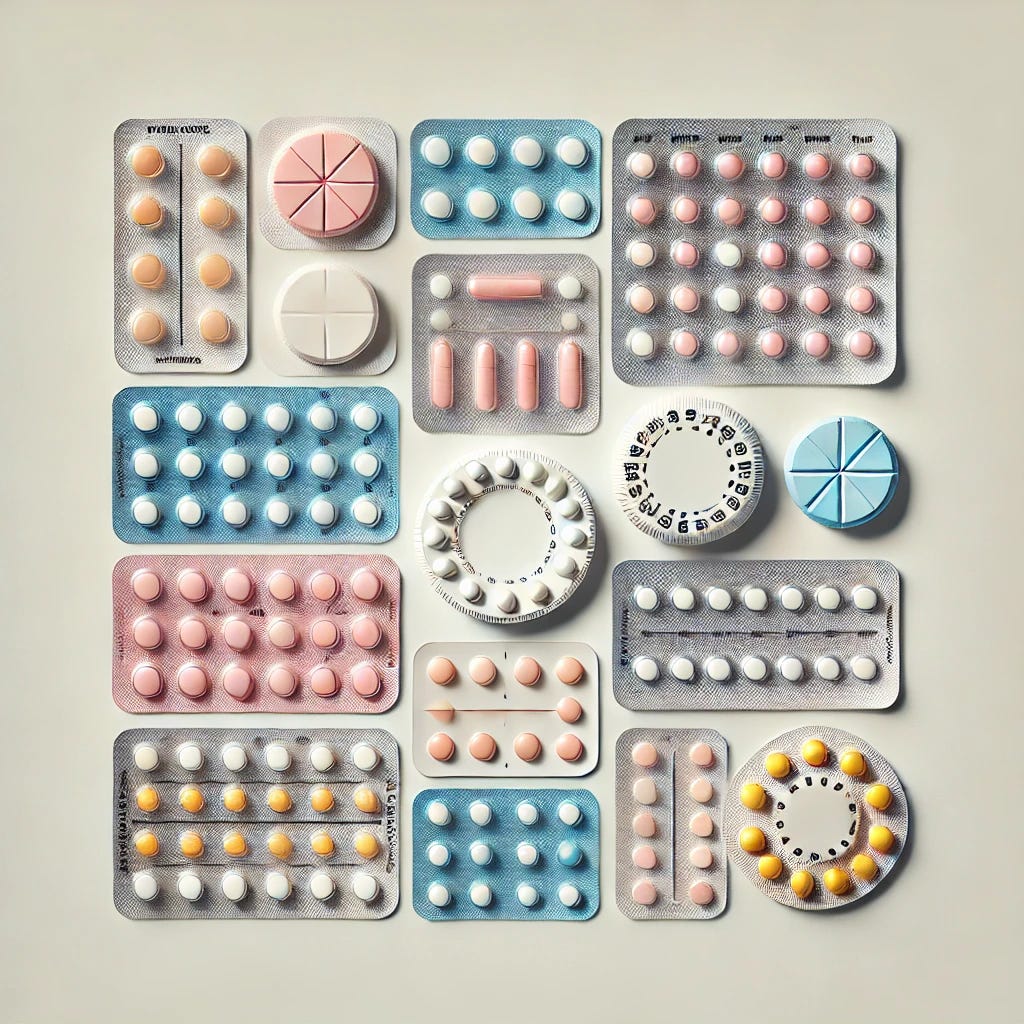Finding the Right Birth Control Should Be as Streamlined as Finding Make Up For Your Skin Tone
Ok I know finding make up for your skin tone isn’t perfect either—but tech in makeup seems to be outpacing advancements in women's health.
When I was 24, I had to pull over on the freeway because my body broke out into hives. The itching was relentless. I hadn’t eaten anything new, changed detergents, or gone hiking—then I remembered the one thing I had changed: starting birth control.
After some digging, I found Reddit threads where women shared similar experiences with ‘Yaz,’ a popular birth control pill. Many reported being dismissed by doctors who suggested their reactions might be due to shampoo or soap. These women, like me, had to advocate for themselves to find better solutions.
At my doctor’s appointment, I explained my symptoms, but my gynecologist also asked about shampoo and body wash. Despite my insistence that nothing else had changed, she recommended I continue the pill for a few more days. Frustrated, I decided to perform a controlled experiment on myself.
Week 1: Stayed consistent with all products and took the pill—hives every day.
Week 2: Stopped the pill—no hives.
Week 3: Restarted the pill—hives returned.
Armed with this evidence, I returned to my doctor, who finally suggested I might be allergic to the pill’s casing. I couldn’t believe I had to experiment on myself to figure out I had an allergic reaction to this specific pill.
Why Does Trial and Error Define Birth Control Selection?
With over 150+ brand and generic options, finding the right pill feels like a gamble. Check out this thread in the subreddit r/birthcontrol: The idea that “it’s all trial and error, but it’ll work out” is unacceptable when hormones are involved. Doctor making recommendations are based on data and insights from their patients—but why isn’t that data used at scale to personalize these recommendations?
Makeup brands like Sephora have simplified shade matching using archetypes and AI tools. Why can’t birth control work the same way? Imagine if, instead of endlessly scrolling through Reddit for anecdotal evidence, women could rely on a data-driven tool to guide their choice.
If you’ve ever shopped at Sephora, you know how skin tone archetypes make choosing makeup easier. AI tools and visual guides show how shades look on different skin tones, reducing trial and error. Even something as simple as showcasing shades on a variety of skin tones is incredibly helpful.
Current Solutions Exist but Fall Short
Some products like, Nurx and HeyJane, offer surveys and doctor consultations to suggest pills. However, users on these products can’t see feedback or reactions from others who’ve used that pill. Websites like Drugs.com show reviews from people having tried specific birth control pills like this one.
Note: I love that Nurx and HeyJane make access to women’s health so much easier. I’m highlighting an opportunity to improve the personalized recommendation aspect.
A Smarter, Data-Driven Approach
For my Data Science Master’s thesis, I proposed a tool combining AI-driven personalization and community reviews. Here’s how it could work:
User Profile: Key health factors like age, blood pressure, migraines, allergies, and hormonal levels.
Archetypes: Grouped profiles (similar to makeup shade models) showing how specific pills work for different body types.
Anonymized Reviews: Contextualized feedback to understand how pills interact with similar archetypes.
AI Recommendations: Active suggestions based on your profile instead of relying solely on passive reviews.
Why Stop at Birth Control?
With over 150 types of birth control pills and 4 billion women worldwide, we shouldn’t have to rely on trial and error to find what works. This is a problem data can solve.
And I believe that this model could also revolutionize the way we approach medications for mental health, like those for depression, anxiety, and bipolar disorder too.
Anyone already working on this?
I’m curious—if you’ve taken birth control pills, how did you decide on one? And how did you evaluate if it was “working” for you in terms of side effects? I’d love to learn your story. You can reach me at divya@patel.space.








Thank you Divya for this insightful post. You are right. Trial and error for something as impactful as birth control is deeply flawed. Your data-driven solution is brilliant—hormonal health deserves personalization at scale. This is why the work that Paulina and Elena of Dama Health are doing is so important and should be amplified.